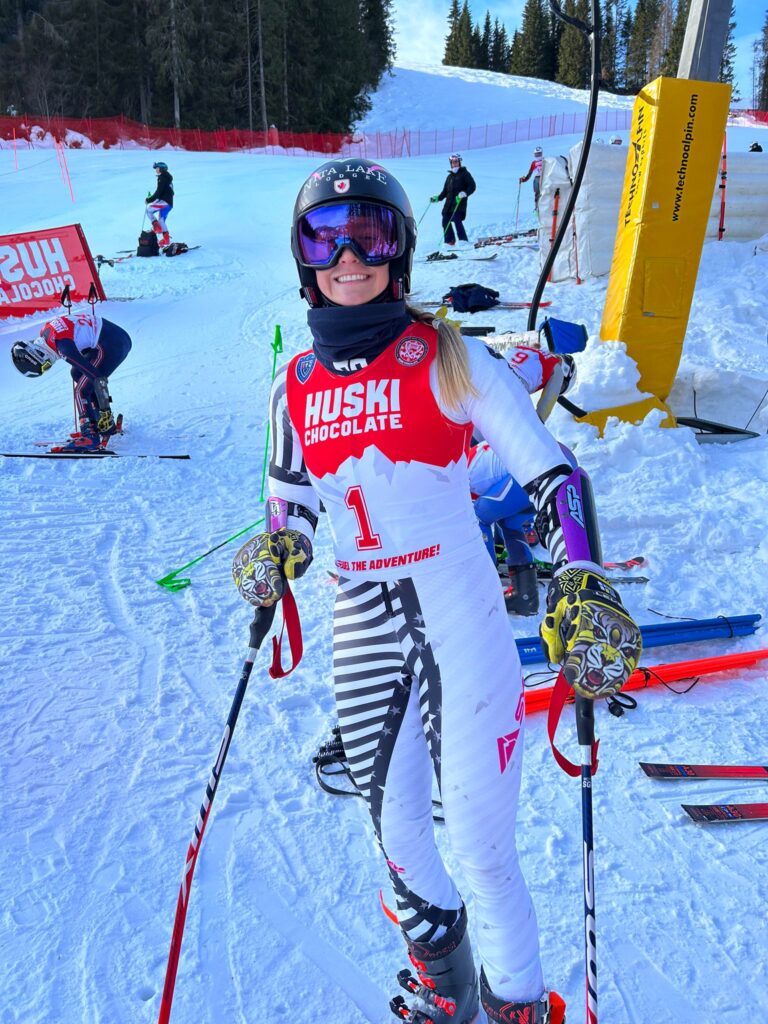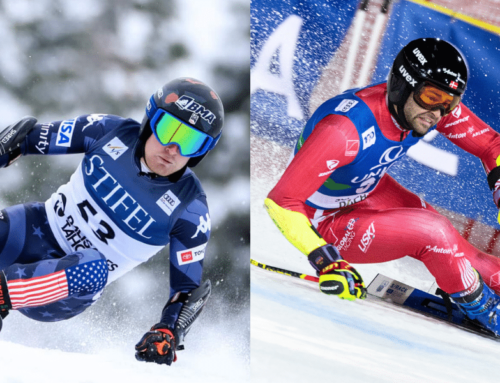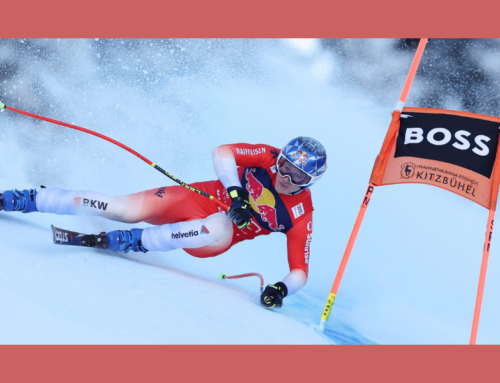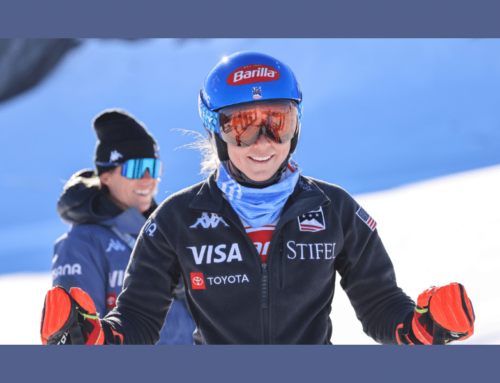Fleckenstein to Tackle World Cup solo, but Far From Alone
One of Canada’s fastest downhillers is flying solo this season … at least on paper, SYNC athlete Stefanie Fleckenstein is relatively new to the international skiing stage but has made quick work of first impressions.
She definitely captured everyone’s attention recently when she dominated every race against some of the world’s top-speed skiers at the South American Cups (SAC) in Chile.
Stef Fleck, as she is known to most people, won the Corralco SAC downhill race on Sept. 26 by well over a second, then edged out U.S. World Cupper Jackie Wiles by 0.01 seconds in the first super-G a few days later and then beat the whole field by almost a full second in the following SG.
“I’m trying not to put too much into it, but it’s a confidence boost, definitely,” Fleck says of the Chile races. “It helped that the course was on a flat hill. I’d done a lot of gliding practice. We didn’t even know the U.S. girls were going to be in those races. We were honestly using the races as a way to get our footing under us. I tend to do better when I have a lot of races under my belt.”
Skier, coach and (maybe) dad technician
The “we” she refers to includes her coach, Thomas Woolson. By all appearances, they are a two-person team. As the coming season approaches, Fleck is also seeking a technician. Last season, when she and U.S. racer Tricia Mangan were racing as a two-women race squad, “Team Stef and Trish,” with Woolson as a coach and largely funded by SYNC, Fleck’s father, Steve Fleckenstein, served as their technician. He may step into the role again for 2023-24.
“He wouldn’t be against coming over for the full season,” Fleck says, adding that she plans to start in the World Cup speed opener in Zermatt, Switzerland on Nov. 18-19. “My dad and I get along really well. We have a lot of trust. I wouldn’t mind having him. He’s been servicing skis for a long time. He’s always been quite passionate about it.”
When Fleck’s father joined her in Europe last season, her results skyrocketed.
She promptly landed her career-best Europa Cup results – 15th in a downhill in France in February and third in March in Narvik, Norway. She also nabbed her first-ever World Cup points, with a 23rd in the Crans-Montana DH and 19th in the Kvitfjell downhill to close the season.
“It’s so hard to find someone you mesh well with. My dad did Tricia’s and my skis for the last half of the NorAm and Europa Cup season. It was nice having him there. Both my parents have been a big part of making this team happen,” Fleck says.
Click on images to enlarge
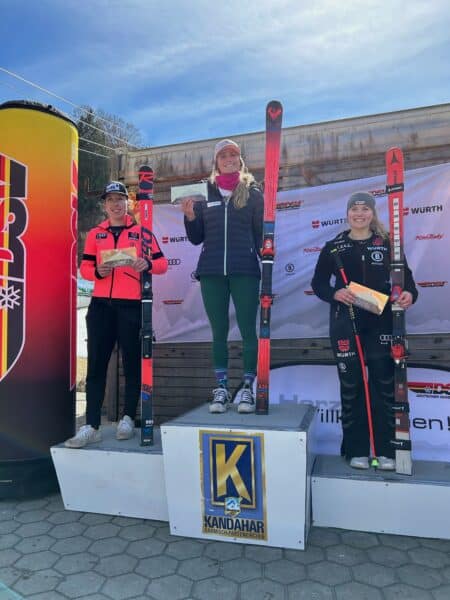
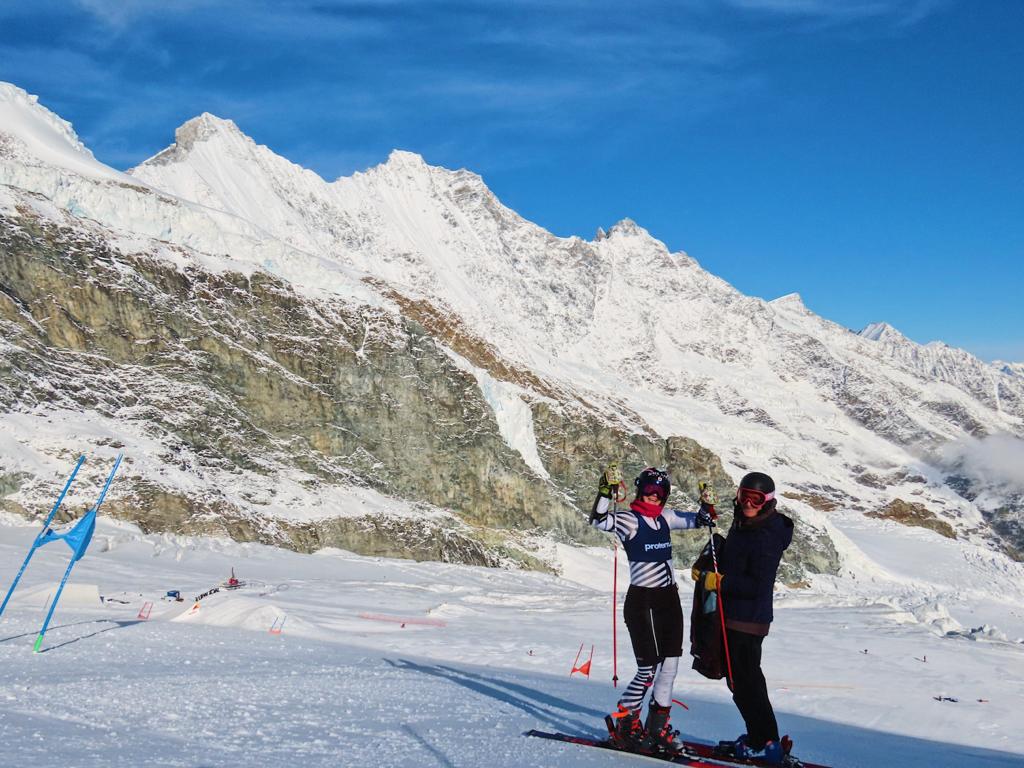
Journey to the national team
Growing up between Vancouver and Whistler, B.C., with parents who were avid skiers, Fleck and her younger sister Katie spent a lot of time on the slopes. They enjoyed alpine and freestyle, but Fleck hadn’t considered taking racing too seriously until the Winter Olympics rolled through Whistler in 2010.
“That was the big head-turner,” she says. “I had watched some racing before that. I definitely knew I loved skiing, but I didn’t understand the level that people competed on.”
Fueled by Olympic dreams, by the end of high school, Fleck moved to Whistler full-time and qualified for the B.C. Provincial team, a feeder program into the Canadian national team. She became a regular on the NorAm circuit, competing in every discipline besides downhill. Fleck promptly landed 10th place in her very first NorAm race (a slalom) in 2014 and her first podium in super-G a year later. She earned a spot on the Canadian Alpine Ski Team in 2016 and decided to put university on hold.
Landing her first NorAm victory in the Lake Louise downhill in 2016, the Canadian became a top 10 contender in every discipline and a regular podium threat in SG and DH, winning the Canadian national downhill title in 2017.
In late summer of 2018, right after her 21st birthday, Fleck geared up for her first World Cup season, training with the Canadian team in Chile, when she broke her leg. With no pressure to continue racing for Team Canada that season, she looked at her options and decided to start college that January with a full-ride scholarship at Colorado University.
“I knew going to school there’d be pressure to race,” she says. “They were paying for me to be there. I ended up having some issues the following seasons.”
Racing for CU
Kicked off the Canadian national team, presumably because she had chosen to go to school, Fleck competed in giant slalom and slalom university races that first semester at CU and finished in the top 10 despite continued pain in her right leg. She had surgery after and launched into the 2019-2020 season with no preseason training. Nonetheless, she landed wins and podiums in tech races on the university circuit and top 10s in NorAm until the season abruptly shut down when COVID-19 hit.
With no NorAm races in the 2020-21 season, Fleck raced where she could, still a top contender in the university races as well as in FIS and national championship competitions.
With the 2022 Olympics on the horizon the following season, Fleck realized it was time to revisit her dream.
“I decided that I wanted to take a shot at qualifying for the Olympics even though I had no World Cup experience or European experience. I figured I might as well try,” she says.
Independent and in SYNC
She left school and joined the International Ski Racing Academy (ISRA) along with Mangan. She entered her first World Cup in December 2021 at Lake Louise. Although a top 30 finish alluded her, she swept the NorAm downhill races that followed and took third in the super-G. She tried the following World Cup speed events in Val d’Isère and again landed out of the points but managed a 22nd and 26th in her first Europa Cups that season and hit the NorAm circuit like a bolt of lightning, landing podiums in every discipline and winning the NorAm downhill title. She credits Coach Jim Pollock for helping her maintain focus.
“Jim was a coach with the Canadian Ski Team, USSA and the Norwegian team, who took it upon himself as a Whistler local to help me when I was struggling to find guidance,” she says. “He took time out of his personal life to do my return to snow with me after my injury, worked with me at World Cups during my first season in Europe and has helped guide me through some of the intricacies of ski racing at the World Cup level.”
During her time at CU, Fleck set up a YouTube channel and partnered with SYNC Performance. She credits this relationship for keeping her afloat since going independent.
“I started wearing the clothes. They were helping with my YouTube channel. When Tricia and I decided to go to ISRA, we had both been SYNC athletes for a season or two. When we told them we were going to make our own team and be part of a SYNC independent team, they were pretty excited. They helped fund it. We created a privateer suit,” she says.
Last season, racing independently as Team Stef and Trish, and this season, when Fleck is racing solo. She estimates that competing independently in the World Cup costs around $100,000 a season. SYNC is supporting a significant percentage of this cost in coach funding.
“Salaries are the biggest portions of what we pay for. We can cut corners in traveling, accommodations and food. I use a lot of sponsors and personal funds, but to have one set company to donate that amount is amazing,” she says. “It takes the pressure off getting multiple sponsors to make up for it.”

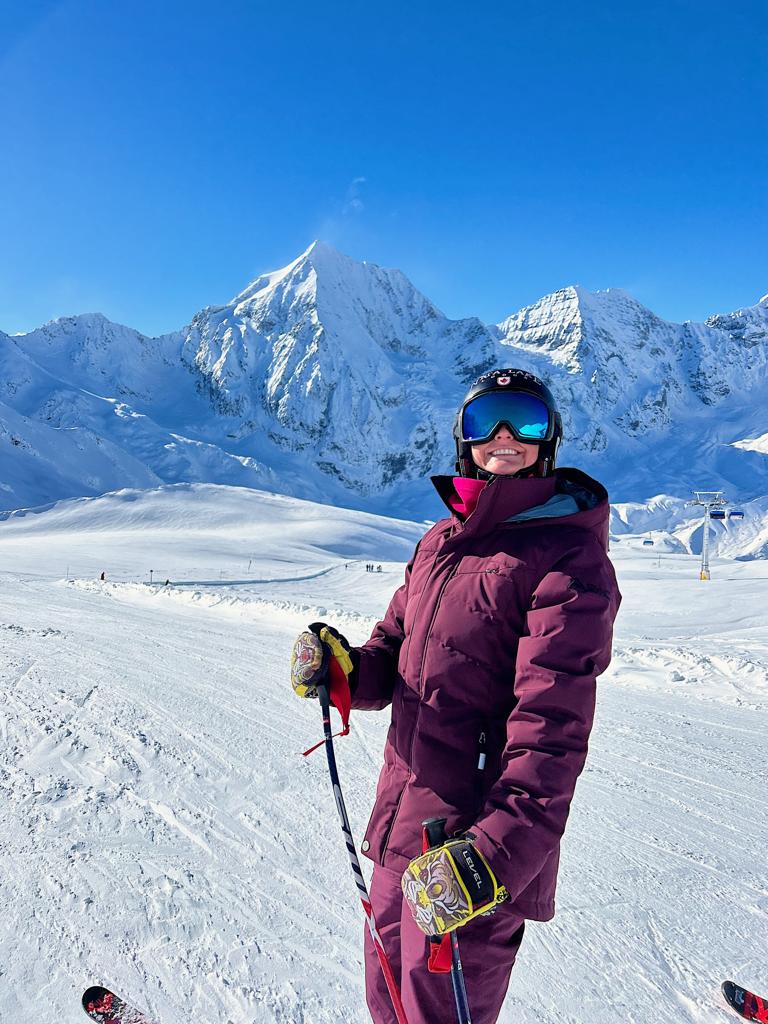
Hopes and inspirations
Thus, riding on the momentum of her success from last season and her early-season speed displayed in the Southern Hemisphere, Fleck is barreling into her first solo full World Cup season, but with high hopes.
“My biggest goal this season is to make it to the World Cup finals. It means you’ve made it into that elite group of athletes. I’m always thinking ahead to World Champs and the Olympics, but if I can make it to World Cup finals this year, it reinforces my goals for the following years,” she says.
In the meantime, Fleck names Swiss racers Marco Odermatt and Joana Hählen as her World Cup role models.
“To me, Marco encapsulates what it means to be a top athlete. He doesn’t just dominate racing; he’s also an amazing person. He’s super friendly and a great teammate. We are the same age, went to World Juniors together. We’ve known each other for a long time. It’s almost like he doesn’t understand how good he is. He’s very humble. When you talk to him and ask, do you celebrate all your wins, he makes it about all the people who went into helping him,” she says. “I look up to Joana.” She goes out of her way to make the new girls on the circuit feel comfortable. She’s very approachable. She doesn’t win every week, but she always has the same mentality. She’s very positive. Her approach to it is all-inspiring. She doesn’t let the noise get in the way.”
Although Fleck is the older sister, she names her younger sister Katie, who is currently attending and competing for CU, as her inspiration.
“She is 2 years younger than me and was a really promising racer as a first-year FIS athlete, placing third at the Canadian Nationals in her first year. Since then, she has overcome four ACL surgeries and a traumatic brain injury. She has overcome each of her injuries with outstanding resilience. While that in itself is a massive accomplishment, she has also managed to be a positive influence on her teammates and friends throughout the entire process. She never fails to impress me with how she handles the disappointment of being sidelined due to injury while also being a cheerleader and positive outlet for her teammates — and me. I’m not sure I would have had the same mental toughness as her. It’s something that I commend,” Fleck says, adding that in ski racing in turns out there’s no such thing as “going solo.”
“Ski racing might be an individual sport, but it takes a massive team to create a successful athlete, and I genuinely wouldn’t be here without the help of my family, friends, sponsors and teammates,” she says.
